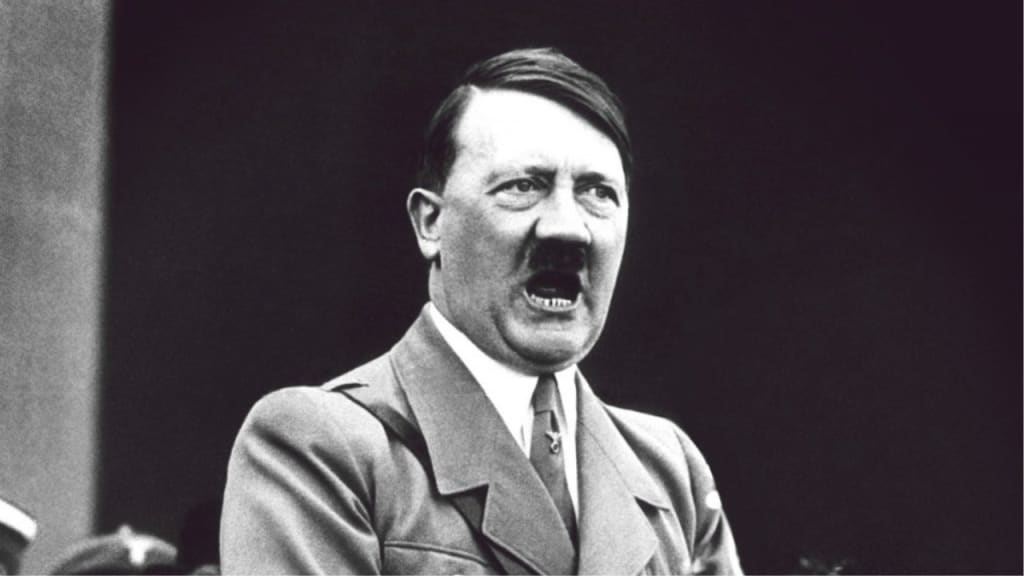
Who is Hitler? Adolf Hitler was one of the most notorious figures in history, responsible for the death of millions during World War II and the Holocaust. He was an Austrian-born German politician who rose to power in Germany in 1933 as the leader of the Nazi Party. His ambition was to create a "Greater Germany" by achieving racial purity and world domination. His actions resulted in the deaths of millions, and the world was forever changed by his regime. This blog post will explore the rise and fall of Adolf Hitler, tracing his life from his birth to his death in 1945.
Childhood and Early Life of Adolf Hitler
Adolf Hitler's childhood and early life played a significant role in shaping the man who would go on to become one of history's most notorious figures. Born on April 20, 1889, in Braunau am Inn, Austria, Hitler's early years were marked by familial struggles and personal tragedies. Raised by a strict father, Alois Hitler, and a doting mother, Klara Hitler, Adolf experienced a tumultuous childhood.
Hitler showed early signs of his passion for art, but his dreams of attending the Vienna Academy of Fine Arts were shattered when he failed the entrance exam twice. This setback, coupled with the death of his younger brother and his mother's illness, left Hitler despondent.
Following his mother's death, Hitler moved to Vienna, where he lived a life of poverty and loneliness. It was during this time that his deep-seated antisemitic beliefs began to take root, influenced by the prevailing societal prejudices and political ideologies of the era.
Understanding Hitler's formative years provides crucial insight into the development of his character and ideology. It allows us to grasp the complex motivations that would ultimately drive him to commit unimaginable acts of violence and destruction.
Rise to Power in Germany
Adolf Hitler's rise to power in Germany was a result of a combination of factors, including economic turmoil, political maneuvering, and his own charismatic leadership. After serving in World War I and witnessing the devastation that Germany faced, Hitler joined the German Workers' Party, which would later become the Nazi Party. Through his passionate speeches and promises to restore Germany's former glory, Hitler was able to attract a large following, particularly among those who felt disillusioned and frustrated by the harsh conditions of the Treaty of Versailles. As the party grew in popularity, Hitler strategically maneuvered his way to the position of Chancellor in 1933. He then exploited the political climate and used fear and propaganda to consolidate his power, eventually becoming the undisputed dictator of Germany. Hitler's rise to power marked the beginning of a dark era that would shape the world for years to come.
Hitler's Policies and Ideologies
Adolf Hitler's policies and ideologies were centered around the idea of creating a racially pure and dominant Germany. His vision was rooted in extreme nationalism, militarism, and the belief in the superiority of the Aryan race. Hitler believed that Germany had been betrayed by various groups, particularly Jews, and that they needed to be eliminated in order to secure the future of the German people.
One of Hitler's most infamous policies was the implementation of the Final Solution, which aimed to exterminate millions of Jews and other minority groups in what became known as the Holocaust. Under Hitler's orders, concentration camps were established, and innocent people were subjected to unimaginable cruelty and death.
Hitler also pursued aggressive expansionist policies, leading to the invasion of numerous countries during World War II. He sought to create a German empire that would dominate Europe and beyond, sparking a global conflict that resulted in the deaths of millions.
It is important to understand Hitler's policies and ideologies to recognize the depths of his evil and the catastrophic impact it had on the world. The atrocities committed under his regime serve as a reminder of the dangers of hate, prejudice, and unchecked power.
World War II and the Holocaust
World War II and the Holocaust were two of the most devastating events in human history, and both were directly linked to Adolf Hitler's reign of terror. During World War II, Hitler's aggressive expansionist policies led to the invasion of numerous countries and the death of millions of people. The Holocaust, on the other hand, was Hitler's systematic attempt to exterminate the Jewish population and other minority groups through concentration camps and mass killings. The scale of suffering and destruction caused by Hitler's actions is unimaginable. It is a chilling reminder of the depths of human cruelty and the dangers of unchecked power. The world was forever scarred by the horrors of World War II and the Holocaust, and it is crucial to remember and learn from these dark chapters in history to ensure that such atrocities never happen again.
The Downfall of Adolf Hitler
The downfall of Adolf Hitler was the culmination of a series of events that ultimately led to the end of his tyrannical regime. As World War II raged on, the tide began to turn against Hitler and his Nazi forces. The Allied forces, united against the atrocities committed under Hitler's command, mounted a fierce resistance, pushing back German forces and liberating occupied territories.
Additionally, Hitler's strategic errors and overreach played a significant role in his downfall. From the ill-fated invasion of the Soviet Union to the failed attempt to capture key Allied positions, Hitler's military decisions ultimately proved disastrous.
Furthermore, Hitler faced internal dissent within his own ranks. Dissatisfaction with his leadership style and the direction of the war grew, leading to plots and attempts on his life.
Ultimately, Hitler's reign of terror came to an end when he took his own life on April 30, 1945, in his bunker in Berlin. The death of Adolf Hitler marked the end of an era of devastation and tyranny, but it left behind a legacy of horror that will forever serve as a stark reminder of the dangers of unchecked power and hate.
Legacy and Impact on the World Today
Adolf Hitler's legacy and impact on the world today is profound and far-reaching. His reign of terror during World War II and the Holocaust left an indelible mark on history, forever changing the way we view power, hate, and the atrocities that human beings are capable of committing.
The horrors of Hitler's regime serve as a constant reminder of the dangers of unchecked power and the importance of safeguarding against authoritarianism. The Holocaust, in particular, is a chilling reminder of the depths of human cruelty and the devastating consequences of prejudice and hatred.
Hitler's name has become synonymous with evil, and his actions continue to shape our collective understanding of the consequences of hate. He is studied in classrooms and discussed in academic circles to ensure that we never forget the lessons of the past.
Today, efforts to combat hate speech, discrimination, and the rise of extremist ideologies are essential in preventing the recurrence of events similar to those perpetrated by Hitler and the Nazis. It is up to us to honor the memory of those who suffered and died under Hitler's regime by promoting tolerance, empathy, and understanding in our own lives and communities.
About the Creator
Golder
My_mind = ["God, learning, business, investment, Programming, artificial intelligence, blockchain"]






Comments (1)
Thank you for share such great information, by the way I didn't knew that Adolf Hitler died due to attempting suicide.